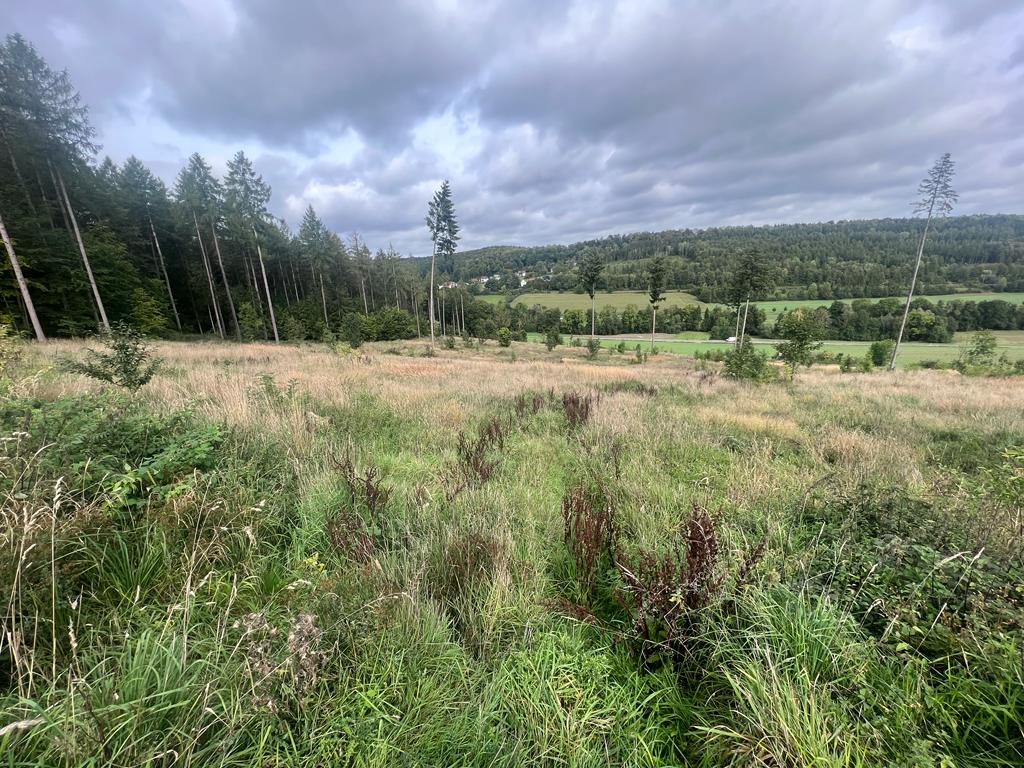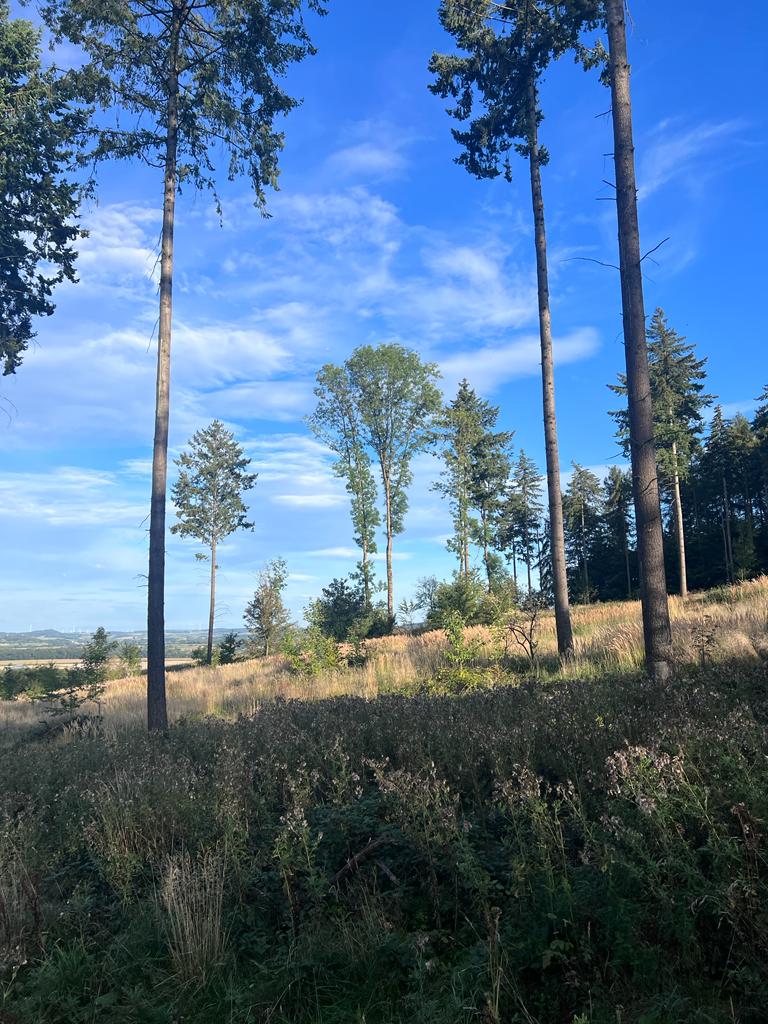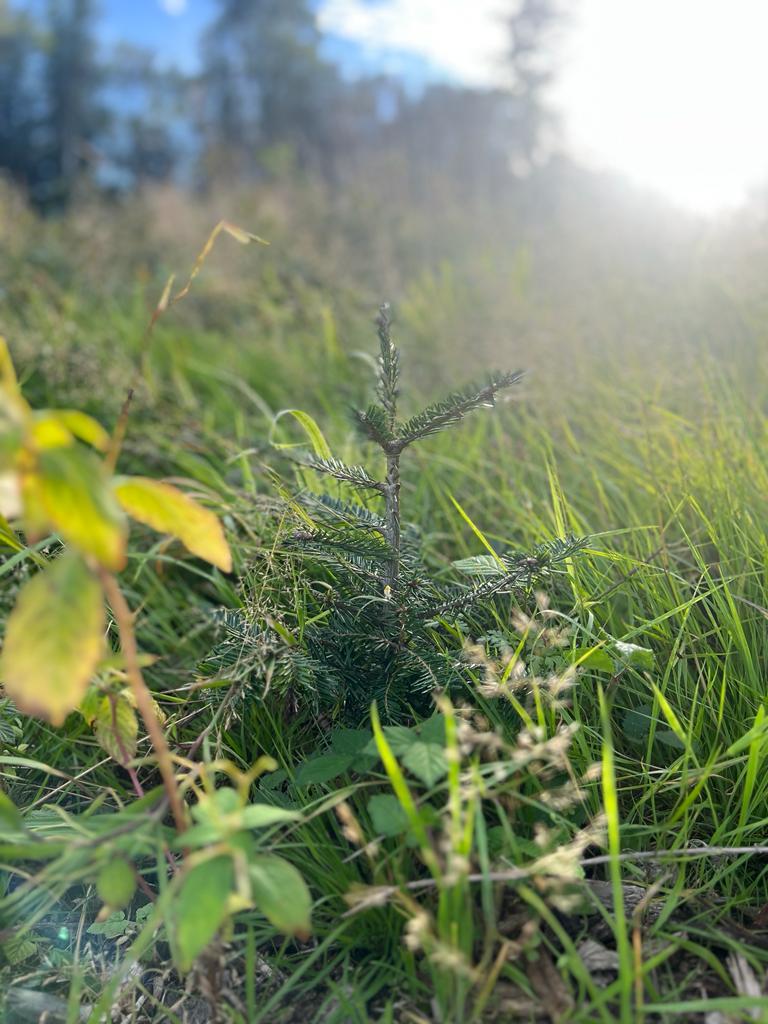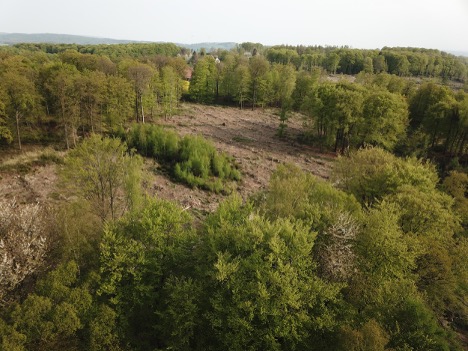Himmighausen
About the project
Life Terra, with the support of OTP, is continuing to plant a mix of climate-resilient trees close to Himmighausen/Nieheim, Germany, an area historically dominated by spruce, which has been significantly affected by the bark beetle and wood industry. We have embarked on an ambitious tree-planting initiative to combat this issue and promote forest resilience. From 2022 to today, we have planted 24,500 trees across various local plots.
You can contribute to this project by adopting trees:
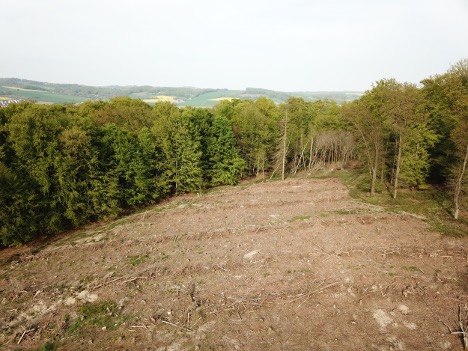
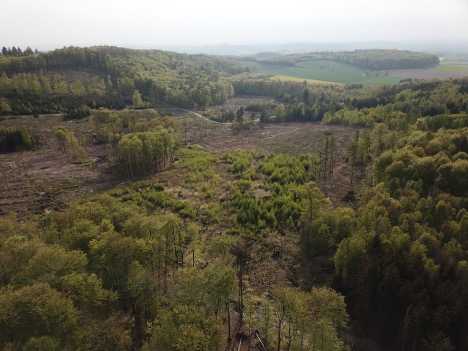
Plot information
The multiple plots located around Himmighausen are now reforested with a diverse mix of conifers such as Douglas fir, white fir, giant fir, and European larch. These species are chosen for their resilience to climate change and pests like the bark beetle. In addition to conifers, broadleaf trees, which are already present in the area, are being incorporated to enhance biodiversity and ecosystem stability.
Wood industry
The wood industry in Germany is highly developed, with spruce historically being a tree of main interest due to its economic value and suitability for various wood products. However, from a holistic perspective, the importance of spruce has been waning. The monoculture forests dominated by spruce are highly susceptible to pest infestations like the bark beetle, as well as to the impacts of climate change. The increased frequency and severity of storms and droughts weaken these trees, making them even more vulnerable to pests.
Animal Impact
The bark beetle, a small but highly destructive insect, poses a major threat to large plots of trees. These beetles bore into the bark of trees to lay their eggs, and their larvae then feed on the tree's inner bark, disrupting the flow of nutrients and water. This can lead to the weakening and eventual death of the trees. Large-scale infestations can devastate forests, turning them from thriving ecosystems into barren landscapes, which highlights the urgent need for intervention and change.

